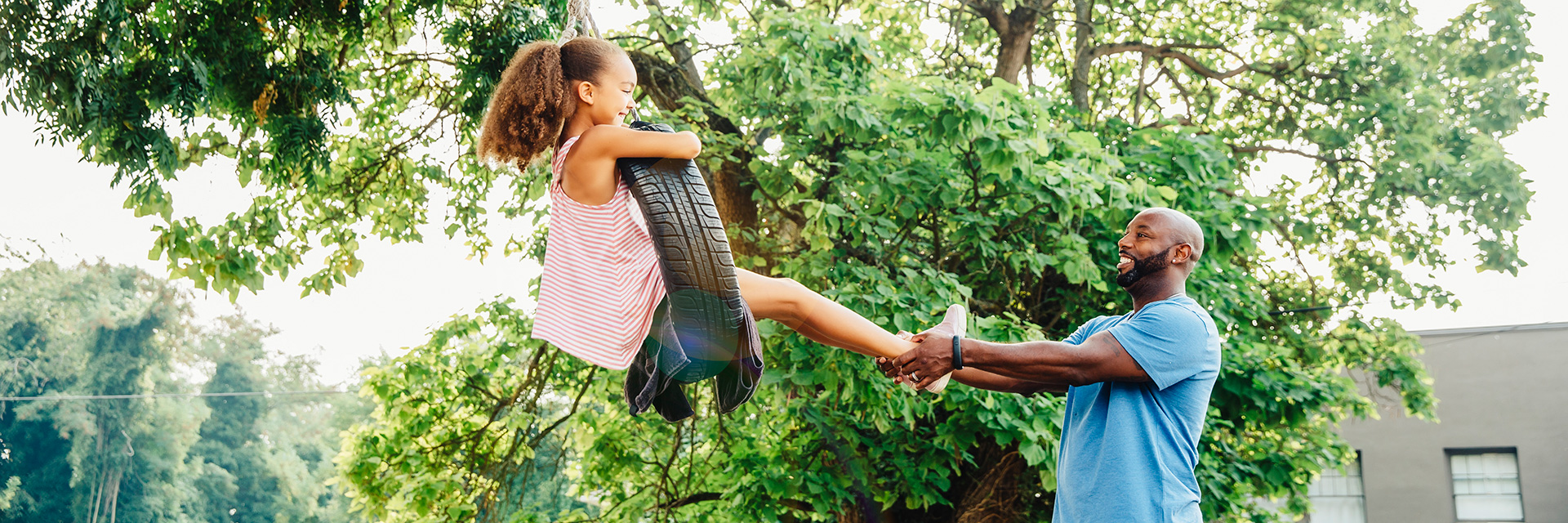Another summer has flown by, kids are back in school and its Labor Day weekend. While the long weekend is a great time to plan one last family picnic, camping trip or day at the lake, it’s a good idea to think ahead about how to keep your family safe as North Texans hit the roads for one last end-of-summer hurrah.
Read on for tips on how to stay safe as you celebrate the holiday weekend.
Travel Safety
Unless you’re planning to stick close to home for a backyard barbecue, you’ll likely be out on the roads with just about everybody else, so buckle up and hang on. The National Highway Traffic Safety Administration reports that 87 percent of drivers and passengers wear seat belts, but the remaining 13 percent account for almost 45 percent of traffic fatalities.
The National Safety Council and the American Red Cross provide the following suggestions for safe holiday travel:
- Always buckle up and follow all traffic signs and laws.
- Don’t drink and drive, or arrange for a designated driver.
- Refrain from using a cell phone while driving, both texting and calling.
- Pack emergency supplies such as food, water, a flashlight and a first aid kit.
- Take breaks on extended trips and get adequate sleep.
- Let someone who is not traveling with you know where you are going, what route you will be taking and your estimated arrival time.
- Learn about your car’s safety features and how they work. Visit My Car Does What to look up information on your specific vehicle’s safety features.
Heat Safety
The first day of fall may be just a few weeks away, but scorching temperatures are still a way of life this time of year in Texas. Take the following precautions to beat the heat over the holiday weekend:
- Wear lightweight, light-colored, loose-fitting clothing.
- Protect yourself from the sun by wearing a hat or using an umbrella.
- Use sunscreen with an SPF of at least 15.
- Avoid or limit alcoholic or caffeinated drinks.
- Take frequent breaks in the shade or indoors.
- Dehydration contributes to heat exhaustion and heat stroke, so drinking plenty of water throughout the day, not just large amounts at certain times, can help prevent heat-related illnesses.
Water Safety
Whether you’re headed to the pool or the lake, practicing water safety is crucial as recreational areas will be especially crowded over the long weekend.
Glenn Hardesty, D.O., emergency medicine physician on the medical staff at Texas Health Arlington Memorial, provides several tips to ensure safety when you’re in and around the pool:
Don’t let kids run around the pool. We see a ton of injuries from that.
Something people don’t think about much is pool chemicals, which can be very harmful to children, so proper storage is important.
Don’t jump off the roof into the pool — ever. And remember, trampolines, roofs and swimming pools do not mix in any combination.
Water guns are getting a lot more powerful, so keep kids safe from potential eye injuries.
Think about things that might be “sharing” the pool with you—like water moccasins. Last year we had two patients bitten by snakes when cleaning leaves out of their pool filters.
If you’re allergic to bees, be careful around the pool. People tend to leave food and drinks around, which will attract bees.
Be sure everybody knows the variations in the pool depth. Children can go from a very shallow wading area to a three-foot depth very rapidly (especially if there’s a drop-off), or go down the slide into deep water and get into trouble quickly. You just can’t turn your back on non-swimmers for a second.
Be aware that bacteria and pathogens can be spread in even chlorine-treated water, especially if young children are present. (Read up on the CDC’s information on recreational water illnesses.)
In addition to pool safety, Hardesty mentions a few tips for North Texans who spend time in and around the many lakes in the area.
“You have to be very careful diving, as our lakes in Texas are notoriously murky and stumpy,” he says. “Once people go below the waterline in that type of water, it’s very hard to find them. If you or your children don’t swim or aren’t strong swimmers, wear a life jacket and keep it on. Glass is another big concern, as lots of people walk in the water without water shoes and end up cutting their feet. And of course, don’t forget you’re sharing the lake with all kinds of critters.”
Food Safety
Another important aspect of Labor Day weekend safety is following food handling and storage recommendations to eliminate risks of food poisoning. According to FoodSafety.gov, one in six Americans gets the illness each year, and about 128,000 are hospitalized because of it.
The Centers for Disease Control and Prevention says the following four steps can reduce that risk:
- Clean your hands and food preparation surfaces regularly, and rinse off fruits and vegetables before preparing them.
- Keep raw and cooked foods separate, and keep raw meat and eggs separate from all prepared foods and produce. This includes cutting boards, dishes and utensils.
- Keep food within the range of safe temperatures, especially meat. Safe cooking temperatures vary by type and cut of meat:
- Beef, pork, lamb & veal (steaks, roasts and chops): 145°F with a 3-minute rest time
- Ground meats: 160°F
- Whole poultry, poultry breasts & ground poultry: 165°F
- Store food properly and keep it at the correct temperature during the gathering. Check out FoodKeeper to get information on preparation and storage for a wide variety of food and beverages.
However you decide to celebrate the Labor Day weekend, be diligent about safety so the worst thing that happens is that you have to go back to work on Tuesday.

